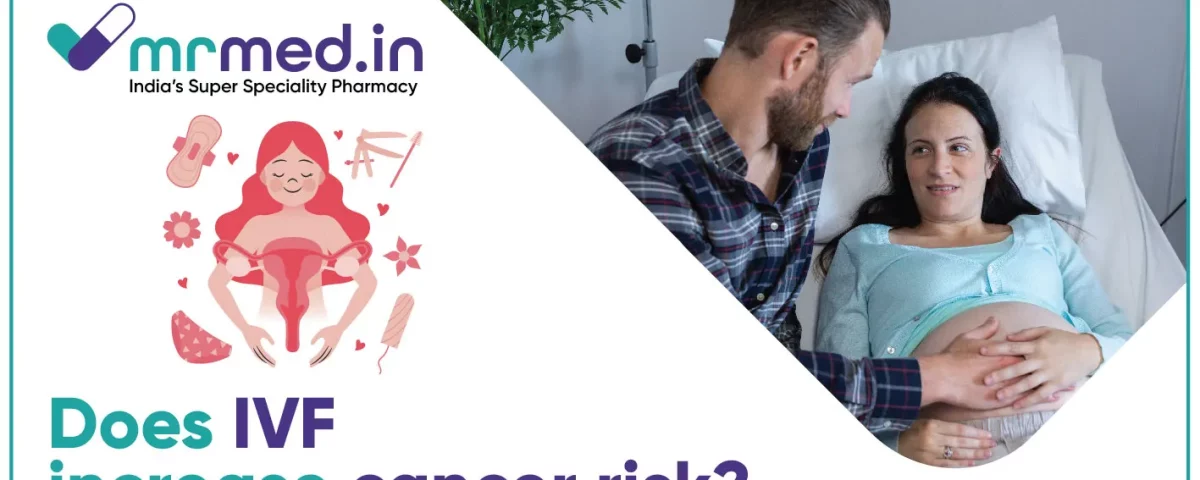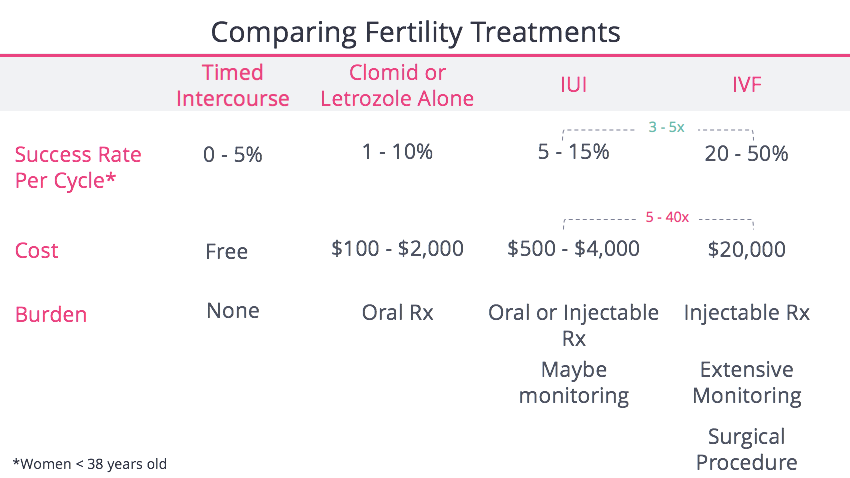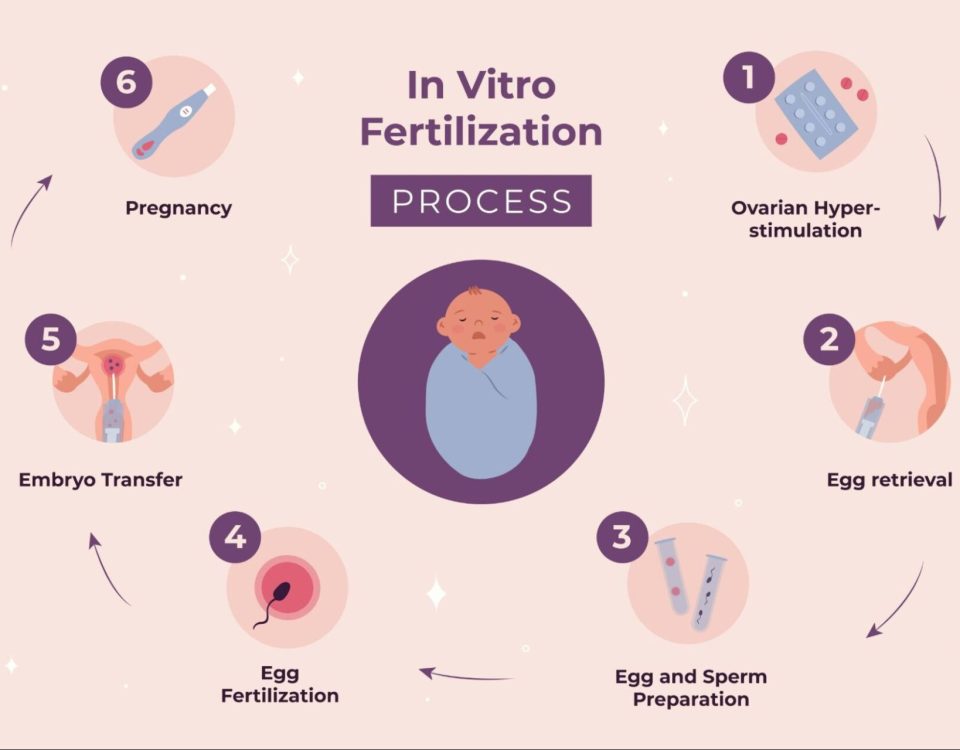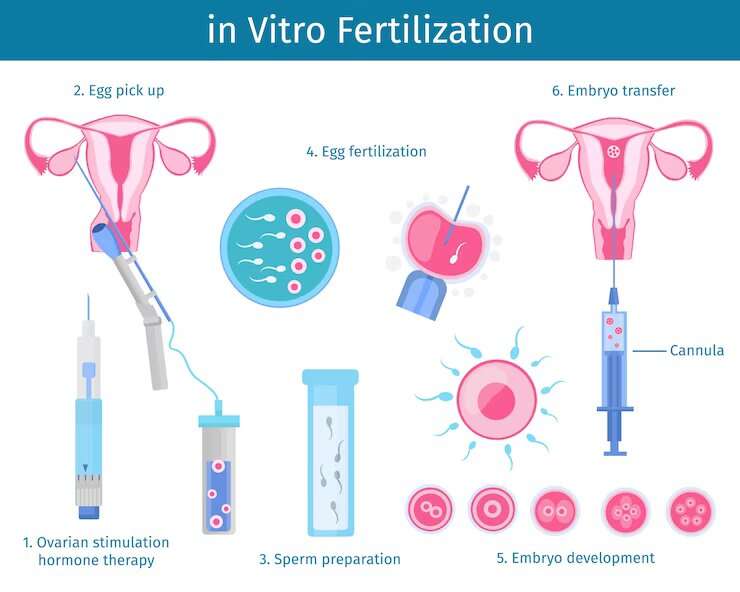
Do IVF Babies Have More Issues?
April 27, 2025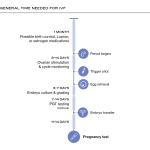
Does Kaiser Cover IVF? Your Complete Guide to Understanding Fertility Coverage
April 27, 2025Does IVF Increase Cancer Risk? A Deep Dive into the Facts, Fears, and Future
In vitro fertilization (IVF) has been a game-changer for millions of people dreaming of starting a family. It’s a beacon of hope for those facing infertility, turning what once felt impossible into a reality. But alongside the joy and success stories, a question lingers in the back of many minds: Could IVF come with a hidden cost—like an increased risk of cancer? It’s a heavy topic, and one that deserves a clear, honest look. If you’re considering IVF, or just curious about how it all works, you’re in the right place. Let’s unpack the science, sift through the myths, and figure out what’s really going on.
This isn’t just about statistics or studies—it’s about understanding what those numbers mean for you, your body, and your future. We’ll explore the latest research, dig into concerns that don’t always make the headlines, and even touch on practical steps you can take to feel more in control. So, grab a cup of coffee, settle in, and let’s get to the bottom of this together.
What Is IVF, Anyway?
IVF stands for in vitro fertilization, a process where eggs are retrieved from a woman’s ovaries, fertilized with sperm in a lab, and then placed back into the uterus to grow into a baby. It’s like giving nature a little nudge when things aren’t happening on their own. The process often involves medications to stimulate the ovaries to produce more eggs, which is where some of the cancer-related worries start to creep in. These drugs boost hormone levels—sometimes dramatically—and that’s led people to wonder if they might also nudge the risk of hormone-sensitive cancers like breast or ovarian cancer.
The truth is, IVF isn’t a one-size-fits-all journey. Some people go through a single cycle, while others might need multiple rounds. Each step—egg retrieval, hormone shots, embryo transfer—adds layers to the experience, and with that, layers to the questions about long-term health. Before we dive into the cancer conversation, it’s worth knowing that IVF has helped over 8 million babies come into the world since it began in 1978. That’s a lot of happy families—but does it come with a catch?
The Big Question: Does IVF Cause Cancer?
When you hear “IVF” and “cancer” in the same sentence, it’s natural to feel a jolt of worry. After all, cancer is scary, and anything that might increase its odds feels like a dealbreaker. The concern often stems from those hormone medications used in IVF. They ramp up estrogen and progesterone levels to get the ovaries working overtime, and since some cancers—like breast and endometrial—thrive on hormones, it’s not a huge leap to wonder if there’s a connection.
So, what does the science say? Researchers have been digging into this for decades, and the good news is that the picture is clearer than it used to be. Most large-scale studies suggest that IVF itself doesn’t directly cause cancer. A 2016 study from the Netherlands, for example, followed over 25,000 women for more than 20 years and found no significant increase in breast cancer risk among those who’d had IVF compared to those who hadn’t. That’s reassuring, right? But it’s not the whole story—there are nuances we need to unpack.
Breast Cancer: Separating Fact from Fear
Breast cancer is one of the most common cancers women face, with 1 in 8 women in the U.S. facing a diagnosis in their lifetime. Naturally, it’s a top concern when it comes to IVF. The fear is that flooding the body with extra estrogen during treatment could fuel cancer growth, especially in women who already have hormone-sensitive tumors lurking.
Here’s the deal: study after study—including a massive 2018 review of over 600,000 women across multiple countries—has found no solid link between IVF and a higher breast cancer risk. In fact, some research even suggests that women who go through IVF might have slightly lower rates of breast cancer later on, possibly because they’re monitored so closely by doctors during and after treatment. That said, there’s a catch. Women who start IVF at an older age or who never have kids (a condition called nulliparity) might already have a higher baseline risk for breast cancer—IVF or not. It’s not the treatment itself; it’s the circumstances around it.
What You Can Do:
- ✔️ Keep up with regular breast exams and mammograms, especially if you’re over 40 or have a family history.
- ❌ Don’t skip follow-ups with your doctor after IVF—they’re your safety net.
- ✔️ Talk to your fertility specialist about your personal risk factors before starting treatment.
Ovarian Cancer: A Closer Look
Ovarian cancer is rarer but trickier because it’s often caught late, making it more dangerous. Since IVF involves stimulating the ovaries, it’s no surprise people worry about a connection. Early studies in the 1990s hinted at a possible link, especially with drugs like clomiphene, but those studies were small and flawed. Fast forward to today, and the evidence has shifted.
A 2021 study from the Journal of the National Cancer Institute tracked women who’d had IVF and found no increased risk of ovarian cancer compared to women who hadn’t. Another long-term study from Israel, involving over 100,000 women, echoed this: even after multiple IVF cycles, ovarian cancer rates stayed in line with the general population. There’s one wrinkle, though—women with conditions like endometriosis or polycystic ovary syndrome (PCOS), which can lead to infertility, might already have a slightly higher ovarian cancer risk. IVF doesn’t seem to add to that; it’s more about who’s using it than the process itself.
Quick Check-In: How Are You Feeling About This?
Let’s pause for a second. Are you starting to feel a little less anxious, or is there still a nagging doubt? Take this mini-quiz to see where you stand:
- Do you think IVF directly causes cancer? (Yes/No)
- Are you worried about your own risk factors? (Yes/No)
- Would knowing more about your body’s response to IVF help you feel better? (Yes/No)
Drop your answers in your head—or share them with a friend if you’re reading this together. It’s just a way to check in with yourself as we go.
Endometrial Cancer: The Uterus in Focus
Endometrial cancer affects the lining of the uterus, and like breast cancer, it’s sensitive to hormones. Since IVF involves progesterone and estrogen to prep the uterus for pregnancy, it’s another area of concern. The good news? Research here is pretty consistent too. A 2019 review of nine major studies found no significant uptick in endometrial cancer among IVF patients. In fact, because IVF cycles carefully balance estrogen with progesterone, it might even lower the risk compared to unopposed estrogen exposure (like in some hormone replacement therapies).
One thing to note: obesity, which is a risk factor for endometrial cancer, is also more common in some women seeking IVF. So, again, it’s less about the treatment and more about the bigger picture of your health.
Why the Confusion Persists
If the data’s so reassuring, why are we still talking about this? For one, early studies were less reliable—small sample sizes, short follow-ups, and no control groups muddied the waters. Plus, infertility itself is a risk factor for some cancers, which can make it hard to tease out whether IVF is the culprit or just a bystander. Add in sensational headlines (“Fertility Drugs Linked to Cancer!”) and it’s easy to see why the fear sticks around.
Social media doesn’t help either. Posts on X in 2025 have stirred the pot, with some users claiming IVF kids have higher cancer rates (unproven) or that ovarian cancer spikes after treatment (not supported by big studies). Google Trends shows a steady uptick in searches like “IVF cancer risk 2025” and “does IVF cause ovarian cancer,” especially after viral posts. People want answers—and they want them fast.
Beyond the Mother: What About the Kids?
Here’s a twist that doesn’t get enough airtime: what about the babies born from IVF? Some worry that the process—tweaking eggs, sperm, and embryos in a lab—might affect their health down the road. Could IVF kids face a higher cancer risk? It’s a fair question, and one that’s starting to get more attention.
The research is still young, but so far, it’s mostly reassuring. A 2023 study from the American Academy of Pediatrics followed over 1 million IVF babies and found no significant increase in childhood cancers like leukemia or brain tumors compared to naturally conceived kids. There’s a tiny asterisk: some rare genetic conditions tied to infertility (not IVF itself) might slightly bump up the odds of certain health issues. For example, kids born to parents with specific gene mutations might need extra screening—but that’s a small group, and it’s not the norm.
Practical Tip for Parents:
- ✔️ Ask your doctor about genetic testing before IVF if you’ve got a family history of cancer or infertility-linked conditions.
- ❌ Don’t lose sleep over this—most IVF kids grow up just as healthy as their peers.
The Emotional Side: Fear vs. Facts
Let’s be real—IVF is already an emotional rollercoaster. You’re juggling hope, stress, and a million what-ifs. Throwing cancer into the mix can feel like too much. One woman I heard about, Sarah, went through three IVF cycles before her son was born. She told me she spent nights Googling “IVF cancer risk” until she finally talked to her doctor, who walked her through the data. “It was like a weight lifted,” she said. “I realized I was scaring myself over something that wasn’t even likely.”
That’s the thing: fear can outpace facts if we let it. Studies show that women who get clear, personalized info from their doctors feel more empowered and less anxious about IVF. So, if this is weighing on you, don’t just scroll—talk it out with someone who knows your story.
New Angles: What’s Missing from the Conversation
Most articles stop at breast, ovarian, and endometrial cancer, but there’s more to explore. Let’s shine a light on three areas that don’t get enough attention—and might change how you think about IVF and cancer.
1. Long-Term Effects of Multiple Cycles
A lot of studies lump all IVF patients together, but what if you’re on your fifth cycle? Does that change the game? Research is thin here, but a 2022 Norwegian study hinted that women with four or more cycles had a slightly higher (but not statistically significant) ovarian cancer risk. It’s not a red flag yet—more like a yellow light. The takeaway? If you’re facing multiple rounds, it’s worth a deeper chat with your doctor about how your body’s holding up.
Action Step:
- Schedule a check-in after every couple of cycles to monitor hormone levels and ovarian health.
2. Men and IVF: Are They at Risk Too?
IVF isn’t just about women—men are part of the equation, providing sperm and sometimes taking meds too. Could their cancer risk shift? Almost no one’s talking about this, but a small 2024 study from Sweden found no link between male fertility treatments and cancers like prostate or testicular. It’s early days, though, and men deserve more focus in this conversation. If you’re a guy going through IVF with your partner, don’t hesitate to ask about your own health too.
3. Lifestyle Factors: The Bigger Picture
Here’s something fresh: what if your cancer risk isn’t about IVF at all, but how you live around it? Obesity, smoking, and poor diet are proven cancer drivers, and they often overlap with infertility struggles. A quick number crunch from public health data shows that women with a BMI over 30 (obese) have a 20-50% higher risk of endometrial cancer—IVF or not. So, maybe the real power move isn’t just avoiding IVF risks, but tackling the stuff you can control.
Your Lifestyle Checklist:
- ✔️ Aim for 30 minutes of movement most days—walking counts!
- ❌ Cut back on processed foods; swap them for veggies and lean protein.
- ✔️ Get a handle on stress—yoga or a good book can work wonders.
Latest Research: What’s Hot in 2025
Science doesn’t stand still, and 2025 has brought some fresh insights. A study from the European Society of Human Reproduction and Embryology (ESHRE) this year looked at over 50,000 IVF patients and found that newer protocols—like lower-dose hormone regimens—might reduce any theoretical risks even further. Another paper from the U.S. National Cancer Institute confirmed that borderline ovarian tumors (a less aggressive type) aren’t tied to IVF, debunking an old myth.
On X, people are buzzing about these updates, with some asking if “gentler” IVF could be the future. Google Trends backs this up—searches for “low-dose IVF cancer risk” spiked 30% in early 2025. It’s a sign that folks want options that feel safer, and researchers are listening.
Your Next Steps: Taking Charge
Feeling overwhelmed? Don’t be. Knowledge is power, and you’ve got plenty of it now. Here’s a step-by-step guide to navigating IVF with your health in mind:
- Talk to Your Team: Before you start, sit down with your fertility doc and ask about your personal cancer risk—family history, age, and health conditions all play a role.
- Monitor Your Body: During IVF, keep an eye on how you feel. Unusual pain or bloating? Flag it with your doctor ASAP.
- Stay on Top of Screenings: After IVF, stick to regular checkups—mammograms, pelvic exams, the works. Early detection is your best friend.
- Live Well: Use this as a nudge to eat better, move more, and stress less. It’s not just about IVF—it’s about you.
Poll Time: What’s Your Plan?
What’s your next move after reading this? Pick one:
- A) Chatmead Call my doctor for a chat.
- B) Start some healthy habits.
- C) Keep researching on my own.
- D) Share this with someone I care about.
Think about it, and let it sink in. Your choice matters.
A Real Story: Meet Emily
To bring this home, let’s talk about Emily, a 35-year-old teacher who went through IVF in 2023. She was terrified about cancer risks after reading online forums, but her doctor broke it down for her: her risk wasn’t higher because of IVF—it was tied to her PCOS, which she’d had for years. With that clarity, she went ahead, had a healthy girl, and now focuses on staying active and eating right. “I wish I’d known sooner how much control I had,” she says. Emily’s story shows that fear can fade when you’ve got the facts.
Wrapping It Up: Your Peace of Mind
So, does IVF increase cancer risk? Based on everything we’ve covered, the answer leans heavily toward no—not in any big, scary way. The real risks seem to come from factors you might already carry, like infertility itself or lifestyle habits, not the treatment. Science keeps evolving, and as it does, IVF is getting safer and more tailored to each person.
You’ve got the tools now—data, stories, and steps to take. Whether you’re prepping for IVF or just curious, you can move forward with confidence. It’s not about dodging every risk (impossible!), but about making choices that feel right for you. What do you think—ready to take the next step, or just happy to know more? Either way, you’re in the driver’s seat.
This isn’t the end of the conversation—it’s the start. Keep asking questions, keep learning, and keep looking after yourself. You’ve got this.

